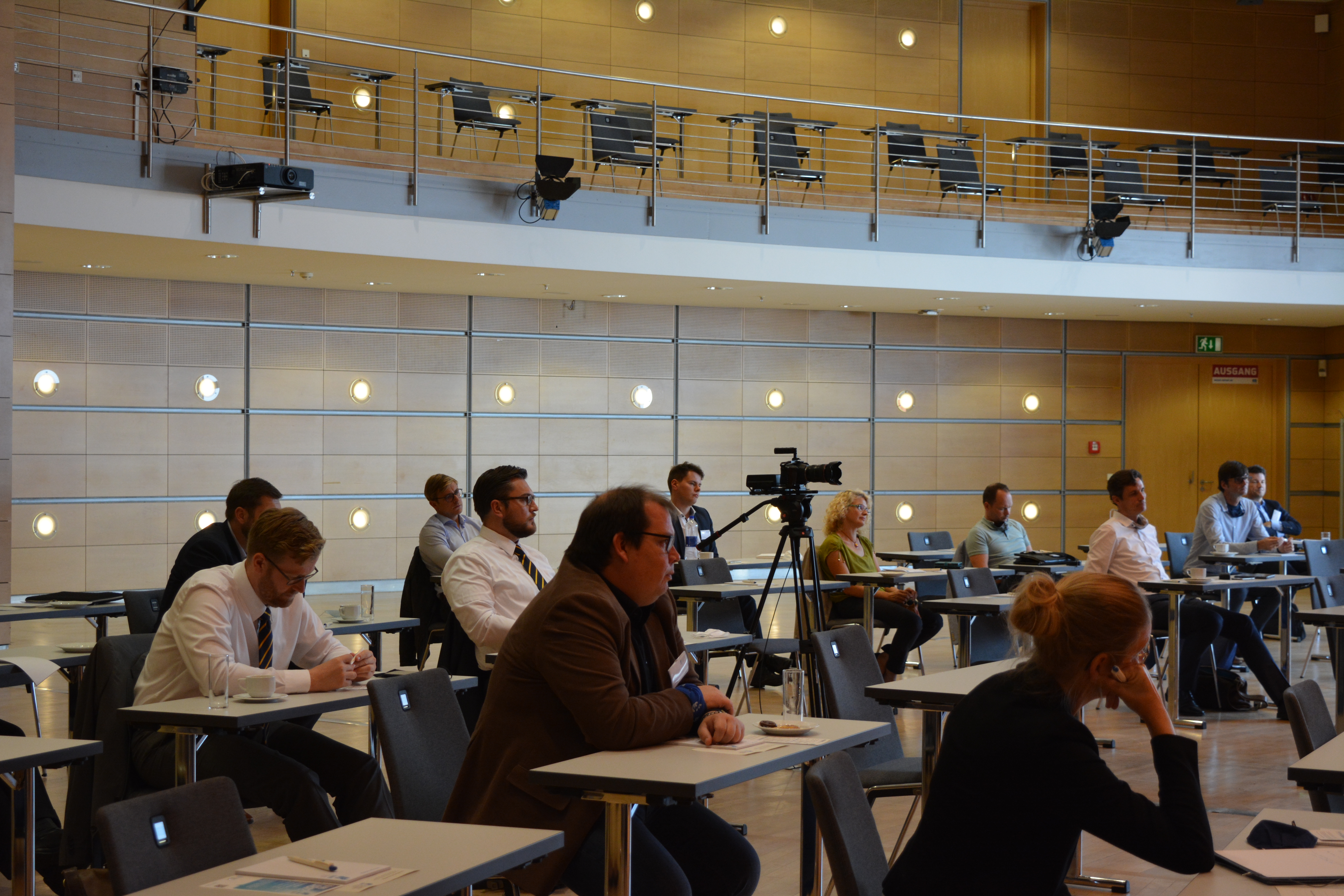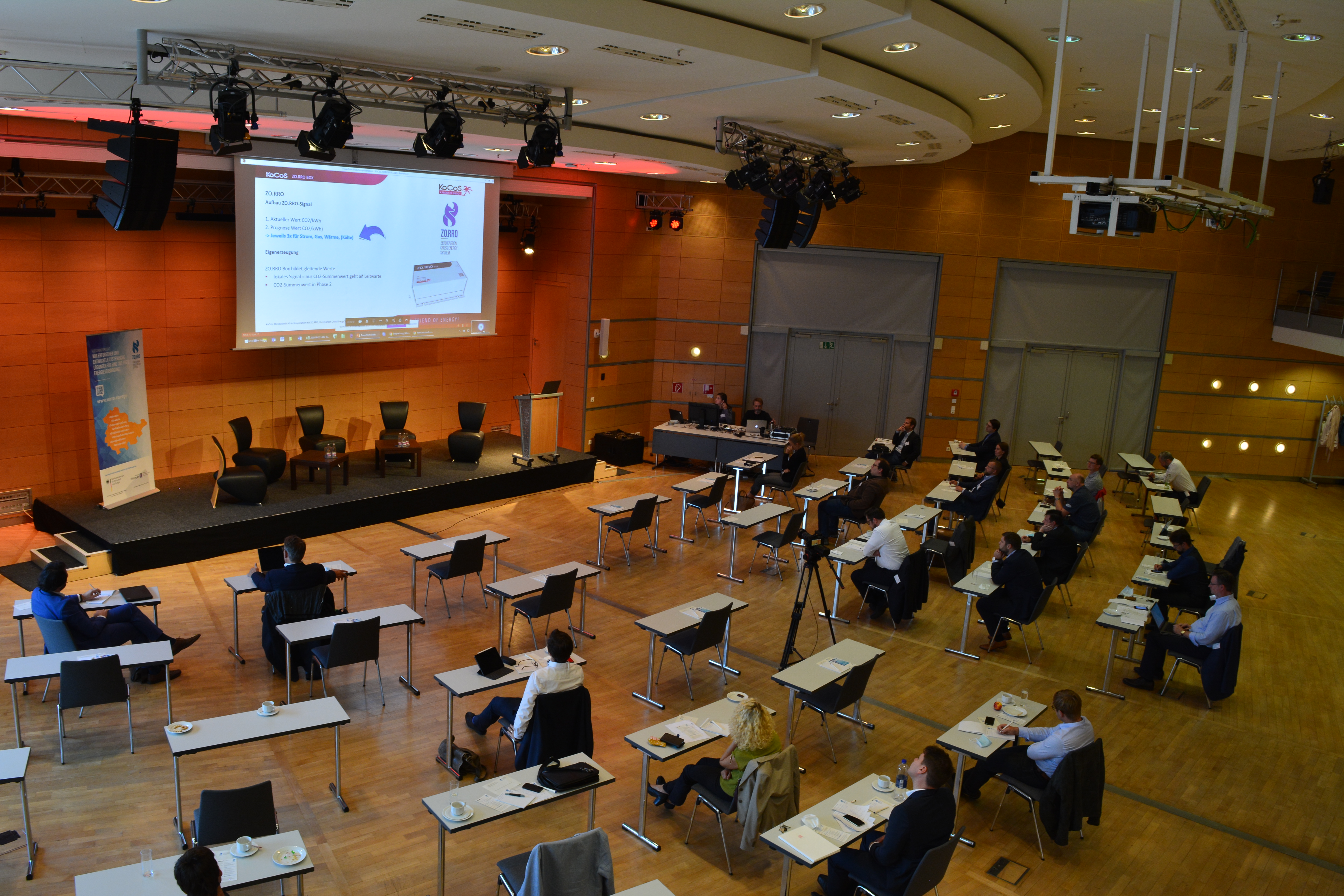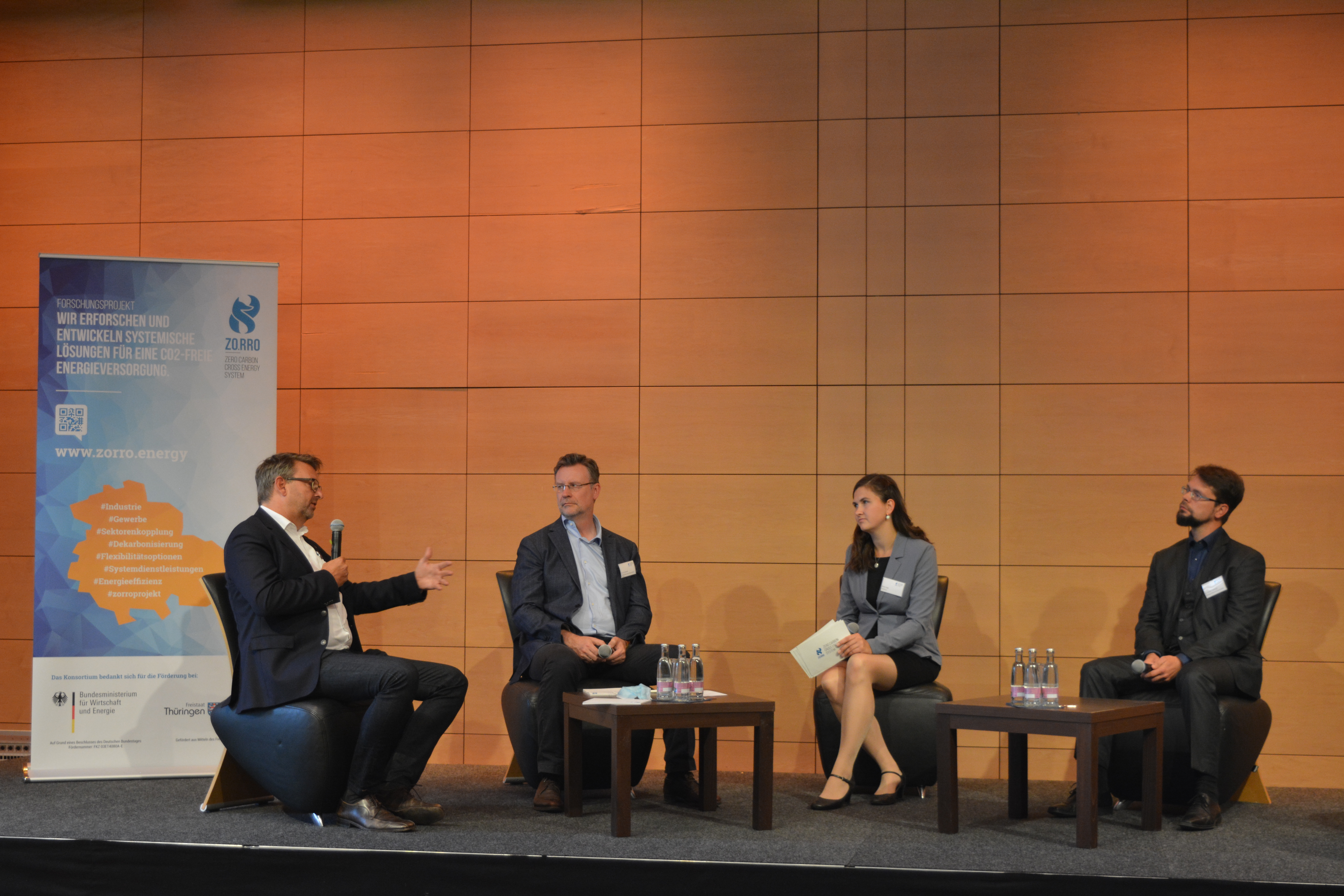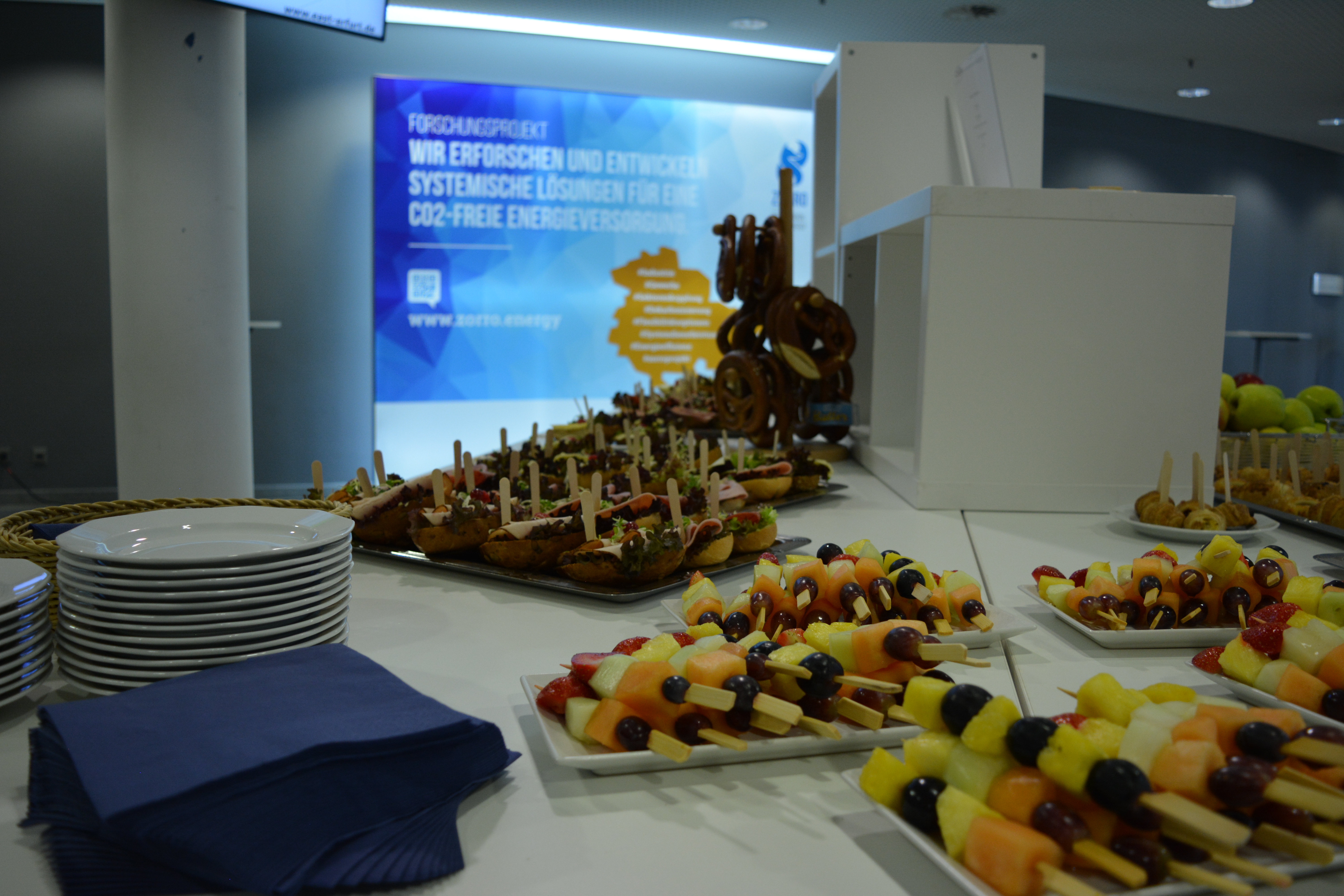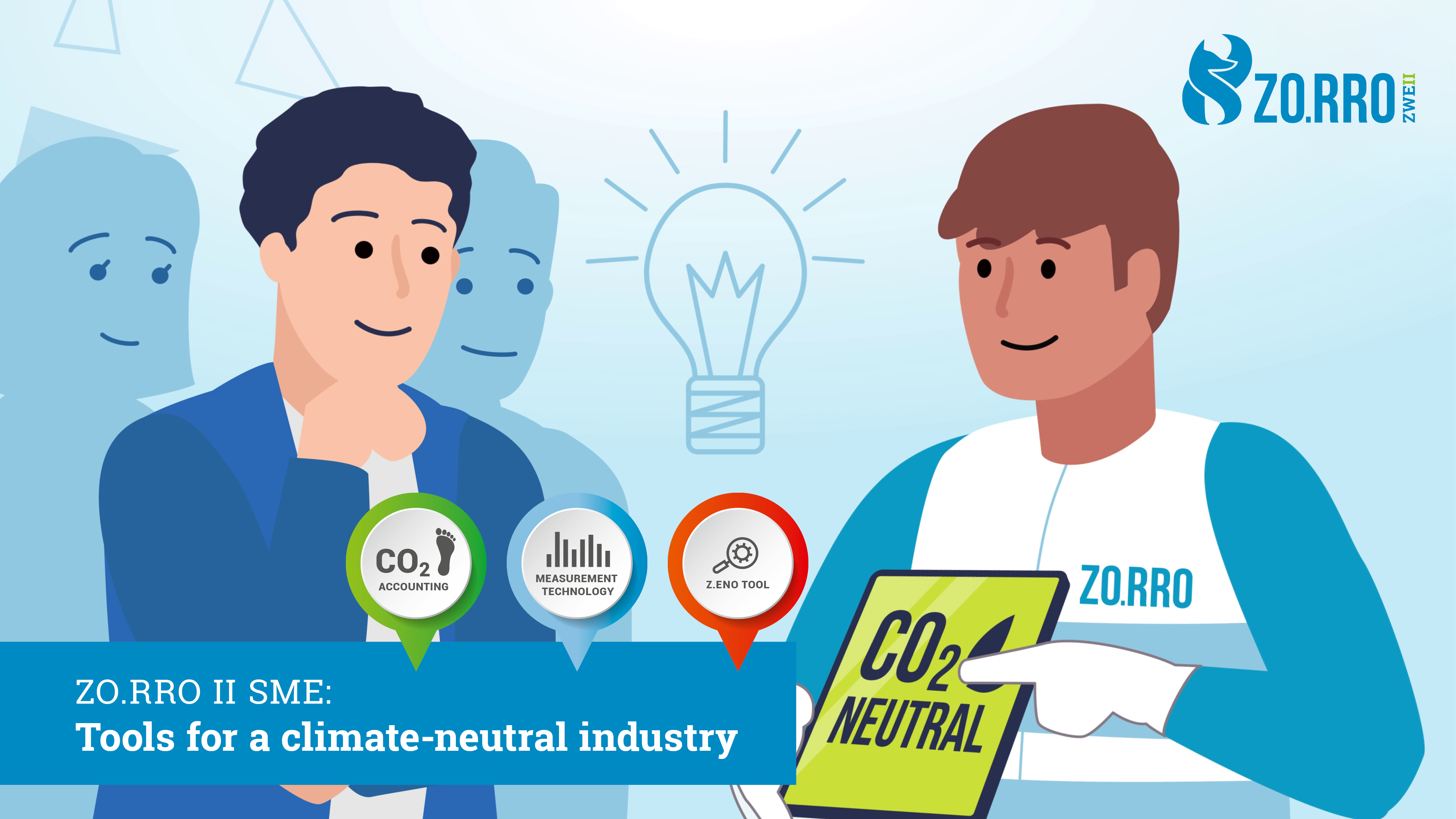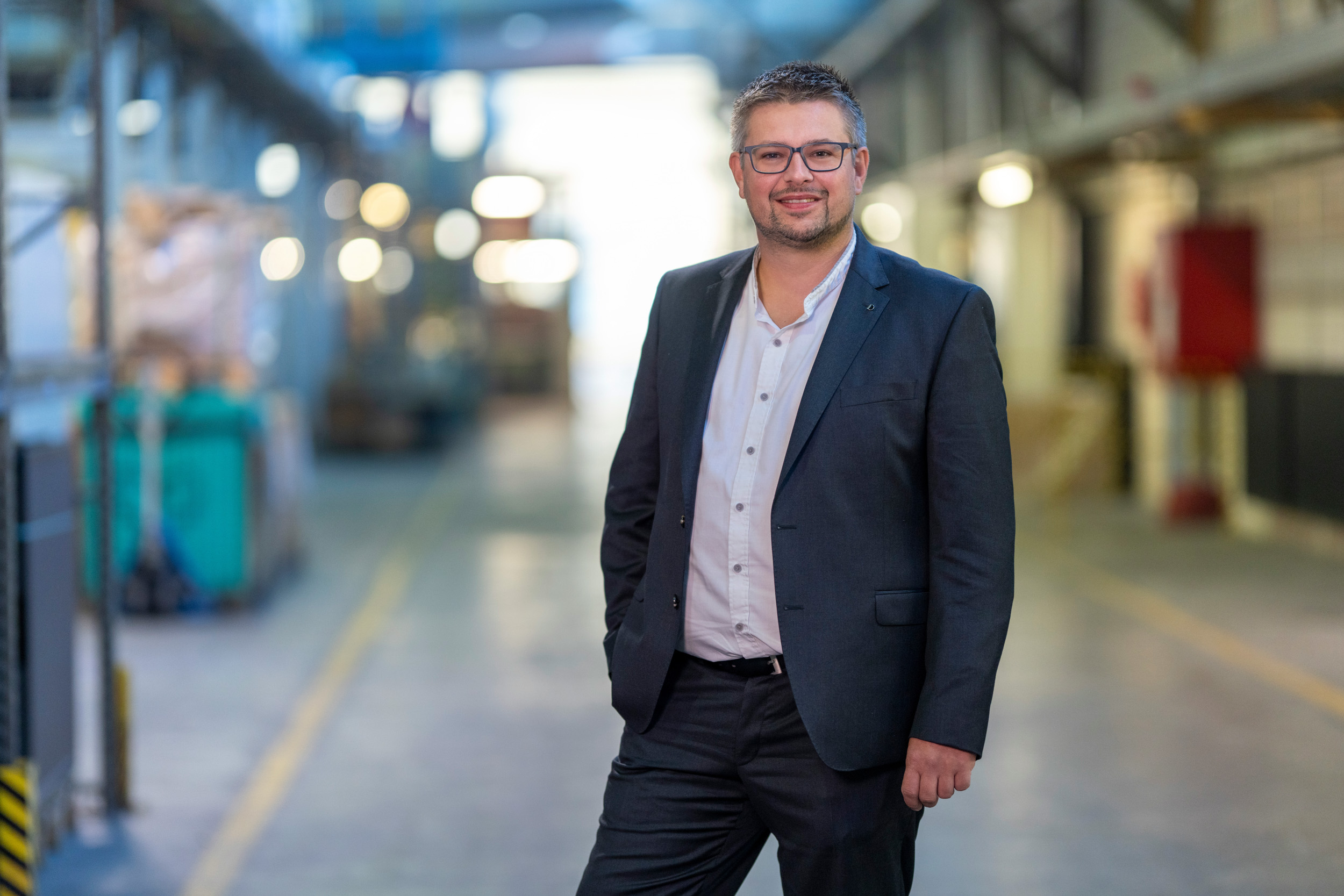ZO.RRO Lab#2
ZO.RRO LAB#2 presents future: Vision and first results of the innovative energy research project in Thuringia
At the halfway point, the ZO.RRO project presents initial results on the industry-based solutions for a CO2-free energy supply using the example of Thuringia
The research project ZO.RRO (Zero Carbon Cross Energy System) took more than sixty interested guests on a journey into the future of the Thuringian energy system on the morning of 22.09.2020. Project manager Prof. Dr. Westermann from the TU Ilmenau welcomed the audience of industry experts and professionals to the ZO.RRO LAB#2 in-person at the event as well as via live stream and gave a short introduction to the project status.
In the keynote speech, Dr. Serafin von Roon, managing director of the Forschungsgesellschaft für Energiewirthscahft (FfE) mbH, gave exciting insights and experiences into Kopernikus-Projekt SynErgie, which is funded through the BMBF (Federal Ministry of Education and Research). The topic was industrial load flexibilization and why industry will play a crucial role in integrating renewable energy into the energy system of the future. The expert emphasized why it is already worthwhile to align one’s own company with the future and to review it with regard to flexibility in consumption.
Dr. Steffen Schlegel from TU Ilmenau presented the academic contribution ZO.RRO-Vision, which is being developed together with partners from the Nordhausen University of Applied Sciences and the Fraunhofer Institute IOSB-AST. In their model, the researchers simulate the energy system of the future and show that, in conjunction with increasing CO2 prices, sector coupling technologies such as heat pumps and hydrogen electrolysers, as well as flexibility in energy consumption, will become more attractive. ZO.RRO focuses primarily on the CO2-free provision of system services which are crucial for grid stability and thus security of supply, and are also estimated to account for up to 20% of total emissions.
Christoph Frenkel from ThEEN. e.V. and project partner Christina Weiß from Trianel GmbH presented why Thuringian companies are already open to the topic and what results the energy experts achieved with ZO.RRO on tour in Thuringia. It became clear that all the companies under consideration have potential for flexibility and that, due to the great diversity of industries and processes, an individual concept development as well as a profitability analysis is required. The various possibilities and their dimensions in industry were examined in detail using practical examples.
What participating companies expected technologically was the topic of the ZO.RRO Toolbox. Thomas Becker, managing director of KoCoS Messtechnik AG, presented the hardware called ZO.RRO-Box, which was specially developed for the project, then Juliane Sauerbrey from the Fraunhofer Institute IOSB-AST presented the matching software solution. The CO2-monitoring tool shown can be configured for municipal utilities and companies alike, and the researcher was open to involving application partners in the development and testing of the tool.
In the concluding panel discussion, two dedicated industry and network representatives from the Thuringian industrial landscape, along with project manager Prof. Westermann, discussed the questions: “Why do we need ZO.RRO? Where are economy and climate projections heading?” Moderator Maria Siegl from ThEEN e.V. asked about the challenges and opportunities for companies in their active efforts to reduce CO2 emissions.
Dr. Jens Katzek, managing director of the Automotive Clusters Ostdeutschland (ACOD) complained about the still partially-missing reliable framework conditions and pleaded for a speed of transformation that companies can keep up with and adapt to. There was consensus that decarbonization must be tackled by society as a whole, not only in Thuringia, but also nationwide. Dr. Andreas Patschger, head of the coordination office of the Thuringian Center for Mechanical Engineering (ThZM) and spokesman for the Cross-Cluster Initiative Thuringia (CCIT), emphasized that cross-industry networked collaboration and stronger cooperation between business and science will be a key to success. The ZO.RRO project makes an important contribution to this.
We thank all guests, speakers and helping hands behind the scenes for the very exchange-rich morning with many questions in the live chat and throughout the event. We will take your suggestions for further research work and continue the successful event series with a ZO.RRO LAB#3.
The ZO.RRO LAB#2 took place with the focus on industry-side solutions on September 22, 2020, from 09:00 to 13:00 on-site in Erfurt as well as virtually. We would especially like to thank IFE GmbH for their support with culinary catering. The LAB was a part of the Cross Cluster Week event series. In the live report on Twitter and in the picture gallery you can get an impression of the successful trade event.




